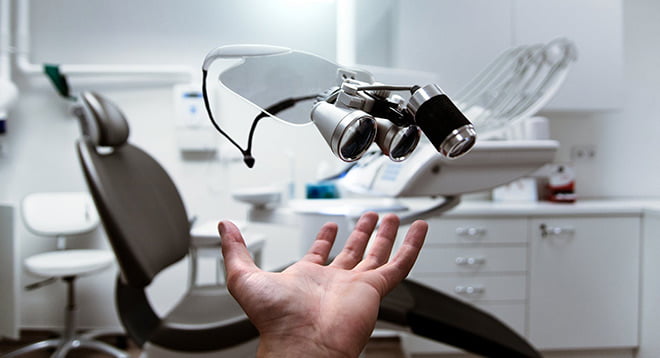The world is increasingly getting smarter thanks to connected devices and their capability to communicate with each other. These smart and connected devices offer us the Internet of Things (IOT) environment. IOT devices after making our home and living smarter now are being incorporated into workplaces, manufacturing units, and even healthcare facilities. IOT is penetrating serious facets of life way beyond the so-called smart devices.
While many industries are using IOT mobile solutions, the healthcare sector is particularly abuzz with the promises of connected devices. The worldwide market of healthcare IOT is supposed to experience a massive growth of $115 billion between 2015 and 2025. With this growth prospect in mind, we are going to evaluate the key ways IOT is going to transform healthcare.
Concurrent Reporting And Monitoring
Thanks to healthcare IOT real-time monitoring of patients now becomes a reality. Such real-time monitoring is having a huge positive impact on the life-saving treatment of major ailments such as heart failure, asthma attacks, cardiovascular diseases, diabetes, etc. A wearable medical device or a smart clinical medical device connected with mobile apps can deliver real-time data about the health metrics and health data that further can be processed as medical reports almost in real time.
As per the recent study of Center of Connected Health Policy remote patient monitoring tremendously helped the treatment of heart failure and cardiovascular patients. According to the study, there has been at least a 50% decrease in the readmission rate of such patients within a 30-day span.
Remote Patient Care
Just like remote patient monitoring and data collection, remote patient care and treatment became a great possibility thanks to healthcare IOT devices. Healthcare professionals can now use connected health devices not only to gather vital patient information but also to help them access prescriptions and treatment remotely without really visiting a clinic or healthcare facility.
Affordable Healthcare
Thanks to IoT devices that facilitate interoperability and machine-to-machine communication to communicate with relevant data, the cost of healthcare can be effectively reduced to a great extent. The remote care coupled up with real-time access to patient data can cut down cost corresponding to unnecessary admissions and visits and laboratory tests. Thanks to healthcare IOT the better accessibility to health data will help to make the medical treatment more affordable than ever before.
eHealth apps
eHealth apps will make smart healthcare an everyday reality. Most of the leading healthcare facilities and organizations have now built robust apps capable to communicate with patients round the clock beside helping the caregivers and professionals to take care of patient care and treatment without any room for inattentiveness. These IoT mobile apps are continuously making smart healthcare accessible for all.
IoT Solution Based Blockchain Initiatives
Blockchain technology is not just limited to the finance and banking sector. Thanks to the huge amount of data produced every minute by healthcare systems across the globe and because of the huge opportunity to garner data-driven insights for better healthcare, top medical facilities all over the globe are now considering to use Blockchain for healthcare. The large chunks of healthcare data produced by IOT devices can be maintained and effectively utilized by Blockchain technology. Moreover, Blockchain as the decentralized and tamper-proof data system can also optimize data security.
Wearable Medical Devices
Wearable healthcare devices ranging from smart fitness wristbands to smartwatches equipped with health and fitness apps are increasingly getting popular and offering us a new way to incorporate health and fitness consciousness in everyday life. The wearable medical devices that constitute a large portion of healthcare IOT market will grow to $14.41 billion by the year 2022.
Virtual Health Assistants
Virtual Health Assistants are going to bring the next healthcare revolution. Virtual assistants capable to interact with chat and voice are allowing swift interactions and speedier processing of patient queries, appointments, medical records, prescriptions and insurance claims across medical facilities. These smart assistants being part of healthcare systems are slowly becoming the smart interlocutors in healthcare facilities.
Challenges To Healthcare IoT
In spite of all the promises and opportunities that we have discussed above, the healthcare IOT is not devoid of some massive challenges. From data security to the integration of devices and maintaining protocols, there are numerous challenges that equally deserve our attention.
Let us have a look at these key challenges to healthcare IoT.
- Data security: The data ownership rules and regulations are still ambiguous in most sorts of the world and because of this data security and privacy are compromised in many instances. The vulnerabilities concerning the security of patient data are still present across healthcare systems.
- Healthcare IOT Integration: There are hundreds of IoT devices following different connectivity protocols and networking rules. Now, bridging this wide variety of protocols and standards under a greater common protocol remains a big challenge. But as the IoT devices are increasing, such a greater industry-wide protocol and standard seems to be an unavoidable necessity.
- Cost of healthcare IOT devices: For most healthcare systems and facilities still integrating the latest breed of smart IoT devices remains a big challenge principally for the cost of devices. On the other hand, the increasing healthcare cost contributed by smart medical devices is making healthcare non-affordable for patients in many developing countries across the globe. Most advanced healthcare facilities that use modern IoT devices and connected environment to provide better healthcare are still out of reach for most patients.
Conclusion
While challenges and roadblocks to new technologies have been common over the years, the technologies that can make massive value additions to people’s life will definitely appear victorious. The healthcare IOT comprising of a whole maze of devices, standards and protocols may appear disorganized. But the real organization of a new technology happens slowly over time as they are embraced by new organizations and individuals. The IOT devices in healthcare will also prove to be a more organized and powerful force to transform treatment and patient care beyond known limits.

